Chicken vs lamb dog food, which one is better? Is lamb good for dogs? What about lamb vs salmon dog food? Most Doodle parents want to provide their furry family member the best possible nutrition. But where do we begin?
In this article, we’re going to learn more about lamb, chicken, and salmon in dog food, and see how they compare to each other. We’ve also listed the best lamb, chicken, and salmon dog food products, so let’s dig in!
Table of Contents
- Which Is The Healthiest Meat For Your Dog?
- An Overview Of Lamb Dog Food
- Chicken Dog Food
- Salmon Dog Food
- Chicken Vs. Lamb Vs. Salmon: Key Differences
- The Final Winner: Lamb vs Chicken vs Salmon
- Frequently Asked Questions On The Best Meat For Dogs
Which Is The Healthiest Meat For Your Dog?
Dogs are like family to us. Well, literally family. It’s only natural for you to want to provide your furry family member the absolute best. And the right place to start from is their diet. A healthy, balanced, nutritious food can greatly affect your dog’s life quality and expectancy.
When it comes to protein sources in dog food, some options might be better suited or even healthier than others. However, all dogs are unique and have their own preferences. For instance, one pup might thrive on a certain protein, while another dog would have to refrain from eating any of it.
Protein is one of the most important macronutrients your dog needs to get from their diet. Animal proteins are high in amino acids, which are essential for your dog’s health and wellbeing. Protein has a key role in many processes in your dog’s body. It’s needed for proper growth and development in puppyhood, muscle repair, cell formation, maintenance, hormonal balance, and more.
By the way, the AAFCO states that adult dogs need at least 18% of protein in their diet for maintenance. Growing puppies and pregnant or lactating mamas require at least 22% percent of protein. (Source)
Furthermore, we recommend you look for dog food formulas that list protein as the first ingredient. This shows that the food contains more protein than any other ingredient. Lower quality dog foods might list a carbohydrate as the first ingredient instead.
Is lamb good for dogs? Which is better – chicken vs lamb dog food? Or lamb vs salmon dog food? Let’s take an in-depth look at those three animal sources of protein, and how each of them can support your dog’s health in their own way. Additionally, to narrow down the huge commercial selection for you, we’ve highlighted the best dog foods for each meat.
An Overview Of Lamb Dog Food
Lamb has gained much popularity in recent years in the dog food industry. As there’s been a huge increase in the variety of proteins available in commercial dog foods, lamb has become a great option for pups who prefer a different taste than the old classics like chicken or beef.
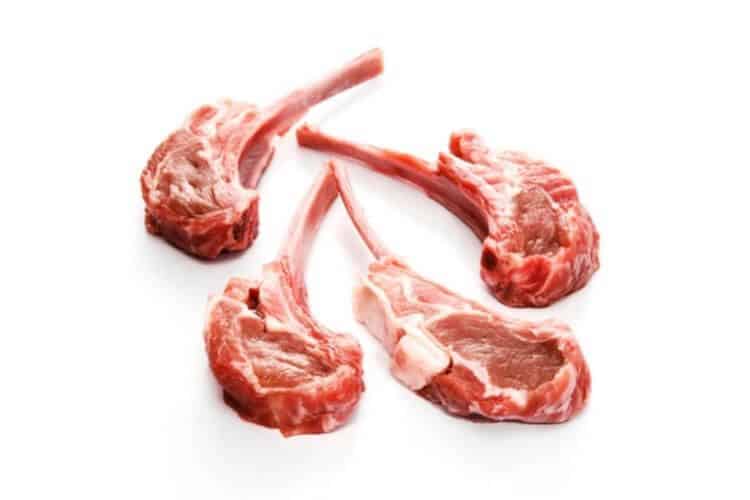
Additionally, many dogs have developed food sensitivities and allergies, so lamb might be a great option for pups with limited diets. Lamb has also become a staple in homemade and raw dog food, which many dog owners enjoy feeding their pups.
Is lamb good for dogs? Drumroll please… Yes! Lamb is an amazing source of high quality protein and fats. It contains high amounts of omega fatty acids, and nutrients like iron, selenium, zinc, B vitamins, and amino acids.
Thanks to the rich nutrient profile, lamb dog food benefits your pup’s coat and skin health, supports their joints, and eye health. B-group vitamins and omega fatty acids support your dog’s nervous system and cognitive function. Zinc is also great for boosting their immunity.
Do you know what health issues Doodles are prone to? Check out our overview of the most common Doodle health problems and diseases.
On dog food labels, you might also notice lamb meal listed as an ingredient. Although it’s more processed than regular, fresh lamb meat, it’s still a great source of protein, amino acids, and other nutrients. In fact, lamb meal is a more concentrated form of protein and nutrients than regular lamb meat.
Not only is lamb healthy, it’s also very tasty. For fussy dogs, lamb might be the perfect option in dog food, as it’s extremely palatable. It has a rich flavor and aroma that no dog can say no to.
Pros
- Excellent source of digestible protein
- High in omega fatty acids
- Great option for picky eaters
- Might be suitable for dogs who are allergic or sensitive to chicken
- Good source of iron
Cons
- High fat content might not be suitable for less active or senior dogs
- More expensive than some other protein sources
Let’s have a look at a few of the best lamb dog food products…
pawTree Real Lamb, Chickpeas & Lentils Recipe
PawTree Real Lamb, Chickpeas & Lentils Recipe is perfect for puppies of all breeds and sizes, as well as normal or underweight adult dogs. All of their recipes are carefully crafted from premium, high-quality ingredients, and they don’t contain any artificial flavors, colors, preservatives, soy, wheat, or corn.
This grain-free lamb formula is an excellent choice for pups that are allergic to poultry like chicken or turkey. In fact, the very first ingredient in this highly-digestible formula is real lamb. The recipe is rather high in protein, which provides that much-needed energy for more active Doods.
In addition to natural ingredients like chickpeas, flaxseed, coconut oil, and blueberries, this recipe contains taurine for a healthy heart, prebiotics for good gut health, and a blend of added vitamins and minerals. It’s rich in omega-3 and omega-6 fatty acids, and the salmon meal in this formula is a great natural source of glucosamine – a studied and proven compound to support healthy joints.
Nutro Limited Ingredient Diet Grain-Free Adult Large Breed Lamb & Sweet Potato Recipe
Nutro takes great pride in their dog food. And with great reasons! Their recipes are made with real, non-GMO ingredients, without the use of any artificial flavors, colors, or preservatives. Furthermore, they don’t use corn, wheat, soy, or chicken by-product meal in their formulas. So you can feel at ease knowing that your pup gets plenty of nutrients from the high-quality ingredients.
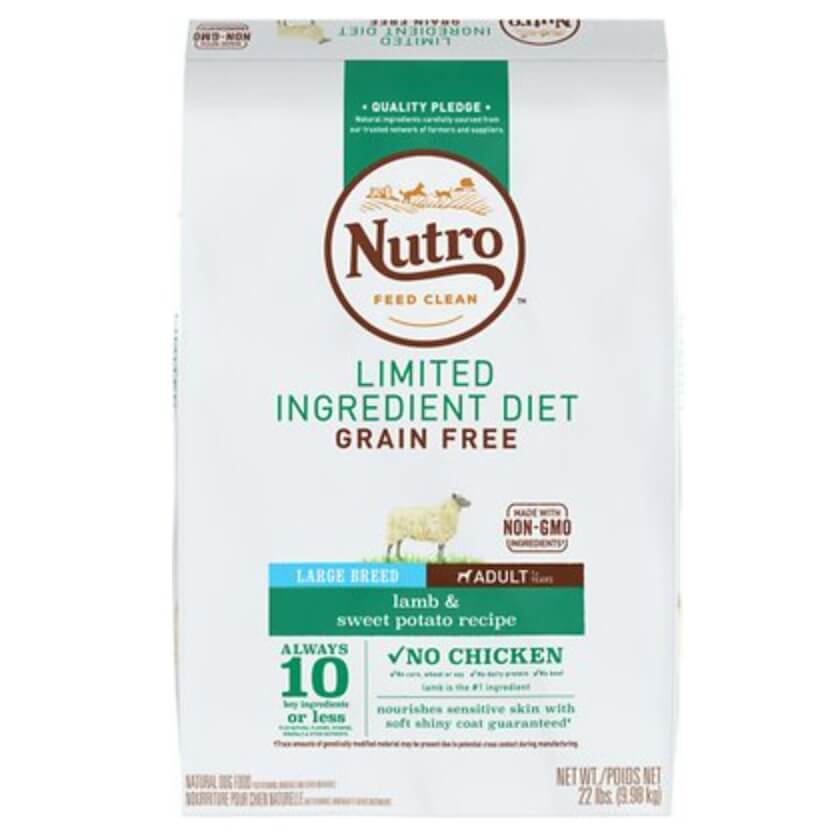
What we love about this formula especially is that it’s suitable for dogs who suffer from food allergies and sensitivities. It’s made with only 10 ingredients and additional vitamins and minerals. If your furbaby has to go on an elimination diet, this dog food would be a great choice for them. In addition, this recipe is grain-free and uses sweet potatoes instead.
Blue Buffalo Life Protection Formula Adult Lamb & Brown Rice Recipe
Blue Buffalo’s recipes are made with high quality, natural ingredients. They use real meat, and don’t add corn, wheat, soy, poultry by-product meals, artificial flavors or preservatives.
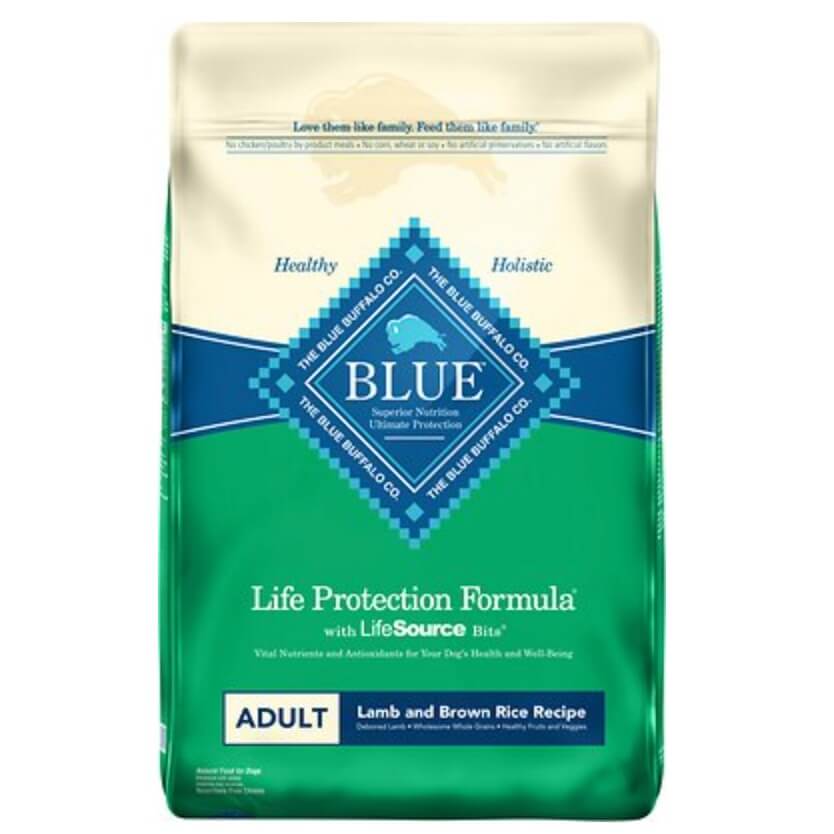
Blue Buffalo’s Life Protection Formula dry dog food lists deboned lamb as the first ingredient, and fish meal as the second. Both of these ingredients are high in omega fatty acids, which are extremely beneficial for your dog’s health.
Additionally, it contains natural ingredients like flaxseed, cranberries, carrots, but also glucosamine to support their joints. As Doodles are prone to hip and elbow dysplasia, added joint supplements can be a great way to prevent and reduce the symptoms.
Although this recipe uses lamb as the primary protein source, it does contain some chicken fat as well. However, food allergies and sensitivities are usually immune system reactions to protein. Therefore, chicken fat shouldn’t trigger allergic reactions or sensitivities.
Chicken Dog Food
Chicken is probably the most popular meat in dog food formulas. It’s affordable, readily available, and it’s in almost all dog food brands’ selection. But is chicken good for dogs? Absolutely, yes!
Chicken is an amazing source of protein and other nutrients that your Doodle needs for their daily functioning and overall health and wellbeing. Chicken has one of the highest protein contents out of all possible options on the market. In addition, it’s also very low in fat, which makes it a great option for pups who might need to lose a few pounds for the sake of their health.
Moreover, chicken contains omega-6 fatty acids, which are great for your dog’s skin and coat. Naturally occurring glucosamine is essential for your pup’s bones and joints. This makes chicken a great option for Doodles who are at a risk of hip dysplasia and other joint problems.
Although most dogs have no problems with chicken in their diet, it is actually one of the most common triggers for food allergies and sensitivities in dogs. Food allergies and sensitivities usually develop over time, especially when your dog eats the same food day by day, year after year.
Pros
- Most dog food brands have chicken in their selection
- High protein content
- Low in fat
- Provides the amino acid glucosamine, which supports joints and bones
- Great for weight maintenance
Cons
- Might not be suitable for dogs with food allergies or sensitivities
- Higher risk of Salmonella contamination in raw and homemade dog food
Here are our two top picks for chicken dog food:
American Journey Active Life Formula Chicken, Brown Rice & Vegetables Recipe
This chicken formula is perfect for active Doodles of all ages. Using real, deboned chicken, and omega-3 and omega-6 fatty acids, this recipe provides plenty of high quality protein that your pup needs. The high protein content is especially great after a long playtime or hike, as it helps repair and build muscle.
American Journey also uses natural sources of fiber like brown rice, rice bran, barley, flaxseed, and beet pulp. Aside from allergies and sensitivities, Doodles are also prone to other digestive problems. So, feeding your dog a good amount of fiber will keep their stomach and digestion in order.
Purina Pro Plan Adult Shredded Blend Chicken & Rice Formula
The Purina Pro Plan recipe is another great option that lists chicken as the first ingredient and main source of protein. The formula has balanced ratios of protein and fats, which is great for Doodles who need some help maintaining weight.
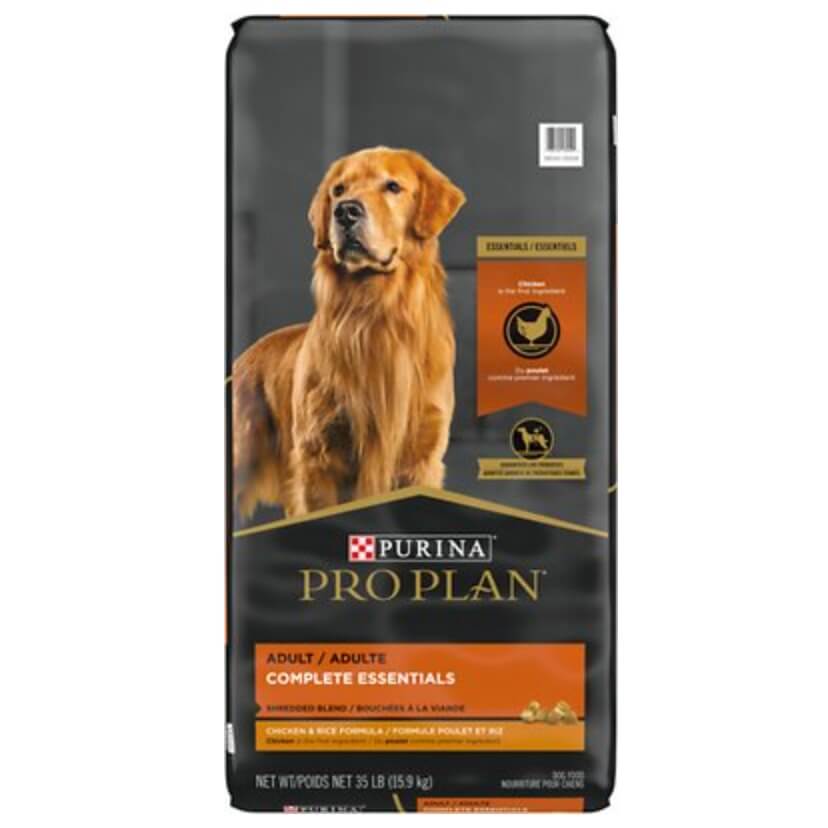
This chicken dog food recipe includes prebiotic fibers and live probiotics that are helpful for digestive issues. If your pup is at risk of joint problems, you’ll be glad to know that this recipe also uses glucosamine and omega fatty acids. Both of them help reduce inflammation, which helps to prevent and manage the pain and stiffness in joints.
Salmon Dog Food
Along with tuna and trout, salmon is the most popular protein rich fish that’s used in dog food. It’s also high in healthy fats, and packed with nutrients and protein. But is salmon good for dogs? Yes! Not only is salmon healthy for humans, it has many health benefits for pets, too!
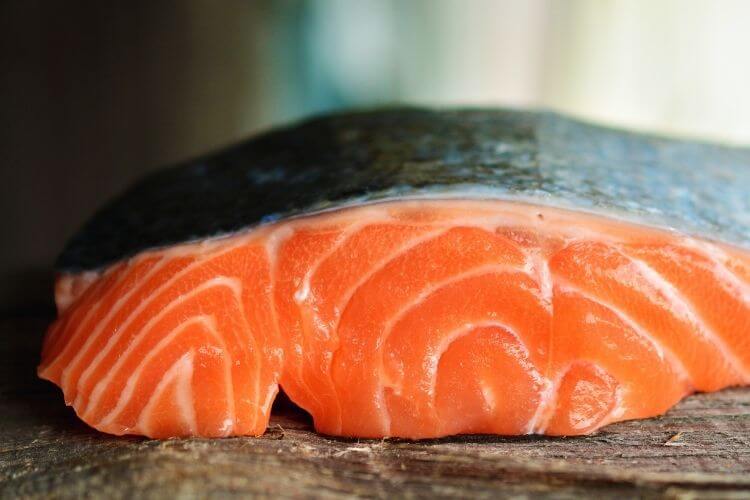
Salmon is particularly famous for its high omega-3 fatty acid content. Omega-3 fatty acids keep your dog’s coat shiny and skin healthy and nourished. In addition, salmon can be helpful in reducing skin allergies and irritation, ease and prevent joint problems, Moreover, salmon’s high vitamin A content supports your dog’s eyesight.
Just like lamb, salmon can be a great alternative if your dog can’t or won’t eat chicken. Fish allergies are not that common in dogs, so salmon might be worth a try!
Pros
- High omega fatty acid content
- Great for dogs with allergies
- Beneficial for eye health
- Supports your dog’s joint health and mobility
- Good source of digestible protein
Cons
- Pricier option
- Low quality salmon might contain GMOs, environmental pollutants, or heavy metals
If your dog thrives on salmon dog food, here are the best options we recommend:
Merrick Grain-Free Real Salmon & Sweet Potato Recipe
Merrick’s grain-free dry dog food formula is perfect for Doodles of all shapes and sizes. It’s packed with protein, omega fatty acids, antioxidants, glucosamine and chondroitin. As this recipe doesn’t contain any chicken products, it might be the perfect alternative if your dog is allergic to chicken.
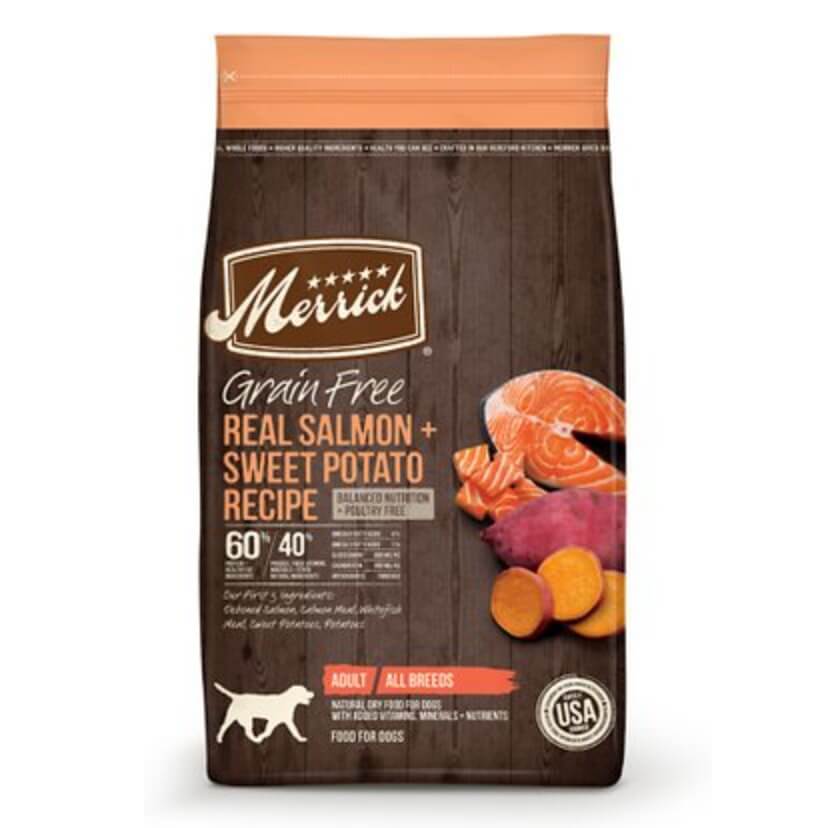
We’re all about real, natural, high-quality ingredients. And this recipe will not disappoint you. It contains nutrient rich whole foods like blueberries, sweet potatoes, and apples, and additional vitamins, minerals, and probiotics.
Blue Buffalo Wilderness Large Breed Salmon Recipe Grain-Free
Perfect choice for large Doodles, this Blue Buffalo salmon dog food provides your dog a well-rounded support that it needs. It’s a grain-free formula made with real, deboned salmon, with added glucosamine and chondroitin for that extra joint support.
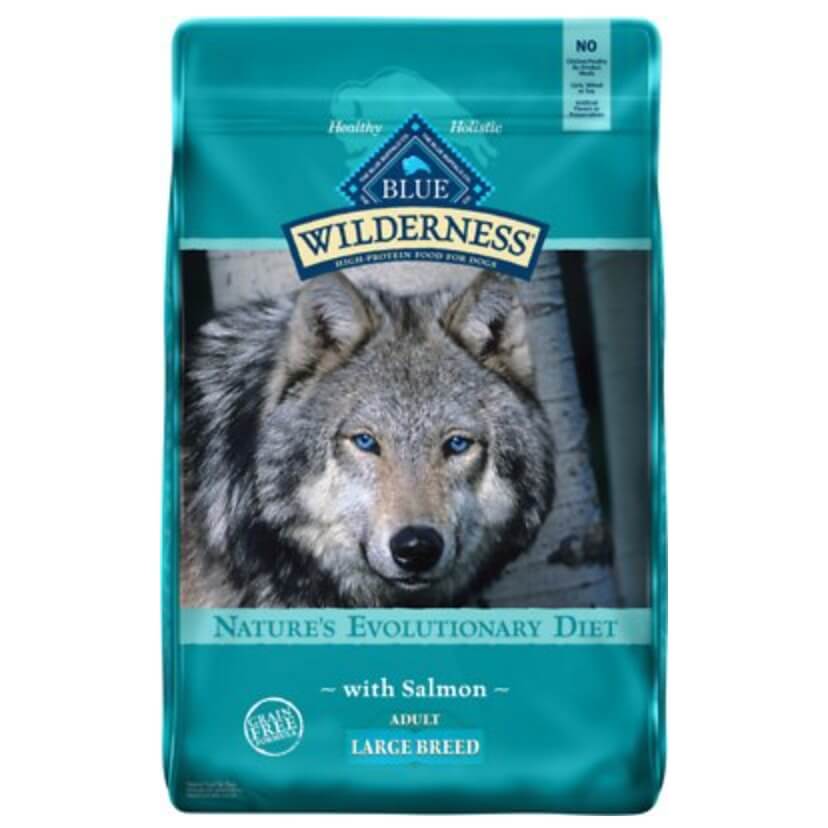
Even though the primary protein source in this recipe is real salmon, it does contain chicken meal as well. Therefore, this might not be the right option if your pup is allergic to chicken. But if your pup just prefers the taste of salmon, they probably won’t even notice the additional chicken meal.
Your furry companion will also appreciate a huge variety of fruit, veggies, and other natural ingredients included in the formula. For example, flaxseeds, potato, chicory root, sweet potatoes, carrots, and even blueberries.
Chicken Vs. Lamb Vs. Salmon: Key Differences
Now that we’ve covered all three protein sources, let’s have a quick look at some other key factors you might want to keep in mind when choosing the right meat for your dog.
Taste
Just like us humans, pets have their own taste preferences when it comes to food. If you’re dealing with a picky pup, try switching up their meat and see what they love most. Some Doodle owners absolutely swear by lamb, as it has the strongest taste and smell, which makes it more appetizing for fussy eaters.
Dog’s Nutritional Needs
Along with the food’s taste, the most important thing to consider is your dog’s overall health and their unique needs. If your Doodle can’t handle a certain meat, you should try switching it up to find the most suitable option for your dog. Is lamb good for dogs with food sensitivities? Most likely.
Your dog’s weight, age, and health conditions should also be taken into account. Some dogs thrive on high protein diets while others need more fats. We recommend you consult with your vet about what would work best for your dog.
Quality
Another important thing to keep in mind is the meat’s quality. How were the animals raised and fed? What does the meat processing involve? How much is there meat in the dog food formula? Salmon, chicken, and lamb are all high quality sources of meat and protein. However, there’s a huge difference in quality between a free-range chicken and chicken by-product meal.
Price
Understandably, cost can be a big factor when looking for high quality dog foods. We can expect the price point to be higher for products that use meats that are human-grade, grass-fed, or produced without the use of antibiotics and hormones. Additionally, some meats are more expensive to source than others. For instance, chicken is usually cheaper than lamb or salmon.
Availability
We can probably agree that chicken is the most widely available source of protein in dog food. There isn’t a single dog food brand that does not offer a chicken recipe. Fortunately, we’ve seen a great increase in terms of variety of meats in dog food. However, if your Doodle has a very particular palate, some brands might not have their favorite meat in selection.
Environmental Factors
Of course, we can’t forget the ethical aspect of the dog food industry. So, it makes sense that we should also consider how producing certain meats affects our environment. For instance, chicken has a much smaller ecological footprint than lamb. In fact, lamb has the greatest impact on our environment, passing even beef production. (Source)
The Final Winner: Lamb vs Chicken vs Salmon
When it comes to choosing between lamb vs salmon vs chicken dog food, the winner is the one that is most suitable for your pet! There are many reasons why each of these meats can be beneficial for your Doodle.
For dogs who are allergic to chicken, lamb and salmon can be great alternatives. For pups who need some help to stay in shape, a high protein chicken formula might be right. It all comes down to your dog’s preferences and their unique needs and dietary requirements.
Frequently Asked Questions On The Best Meat For Dogs
What Meat Should Dogs Avoid?
In commercial, high quality dog food formulas, all meats are safe to eat. Of course, if your dog is allergic to a certain type of meat, it’s better if you avoid that.
However, you shouldn’t feed your dog with human foods like bacon, ham, or sausages. Avoid giving your dog any meat products that are too fatty, salty, spicy, or have seasonings like onion or garlic. Food safety is definitely something you should be mindful of when caring for your Dood!
Which Is Healthier? Chicken Or Lamb?
Both chicken and lamb are amazing sources of protein, and provide other essential nutrients that your dog needs. However, chicken and lamb do have slightly different nutrient profiles. Therefore, both of them can be healthy for different purposes. For example, lamb is a red meat and with a much higher fat content. In contrast, chicken is very low in fat and higher in protein.
When it comes to lamb vs chicken for dogs, it all boils down to which option is more suitable for your dog. Overweight or less active dogs might benefit from a protein that’s not as fatty. Pups with food sensitivities might not be able to eat chicken, but lamb instead. Or they just prefer one taste over another.
Is Salmon Dog Food Bad For Dogs?
Salmon is a nutritious source of protein that’s very beneficial for dogs. It’s high in omega-3 fatty acids that are great for your dog’s coat, skin, joints, brain health, immune system, and more.
But, do keep in mind that not all dog foods available in stores are good for your pet. We recommend you choose formulas that are made with high quality, natural ingredients, list protein as the first ingredient, and don’t use any artificial colors, flavors, or preservatives.
Is Lamb Good For Dogs With Allergies?
Lamb can be a great option for Doodles who suffer from food allergies and sensitivities. Mainly because chicken is one of the most common triggers, and is most widely available in dog foods. Over time, when dogs are repeatedly exposed to one type of protein, they might develop a sensitivity or allergy. As lamb is not as common in most dogs’ diet as chicken, it can be the perfect substitution for chicken.
In conclusion, choosing the healthiest and most suitable source of protein for your dog can be a difficult task. After all, every dog owner wants best for their little companion. We hope this article has managed to answer all of your questions when it comes to choosing the best source of protein for your dog.
Which one does your Doodle prefer – salmon vs chicken vs lamb dog food? Let us know in the comments below!
The information on this page is for informational purposes only. It is not intended to be a substitute for qualified professional veterinary advice, diagnosis, or treatment. Always seek the advice of your veterinarian or other qualified animal health provider with any questions you may have.

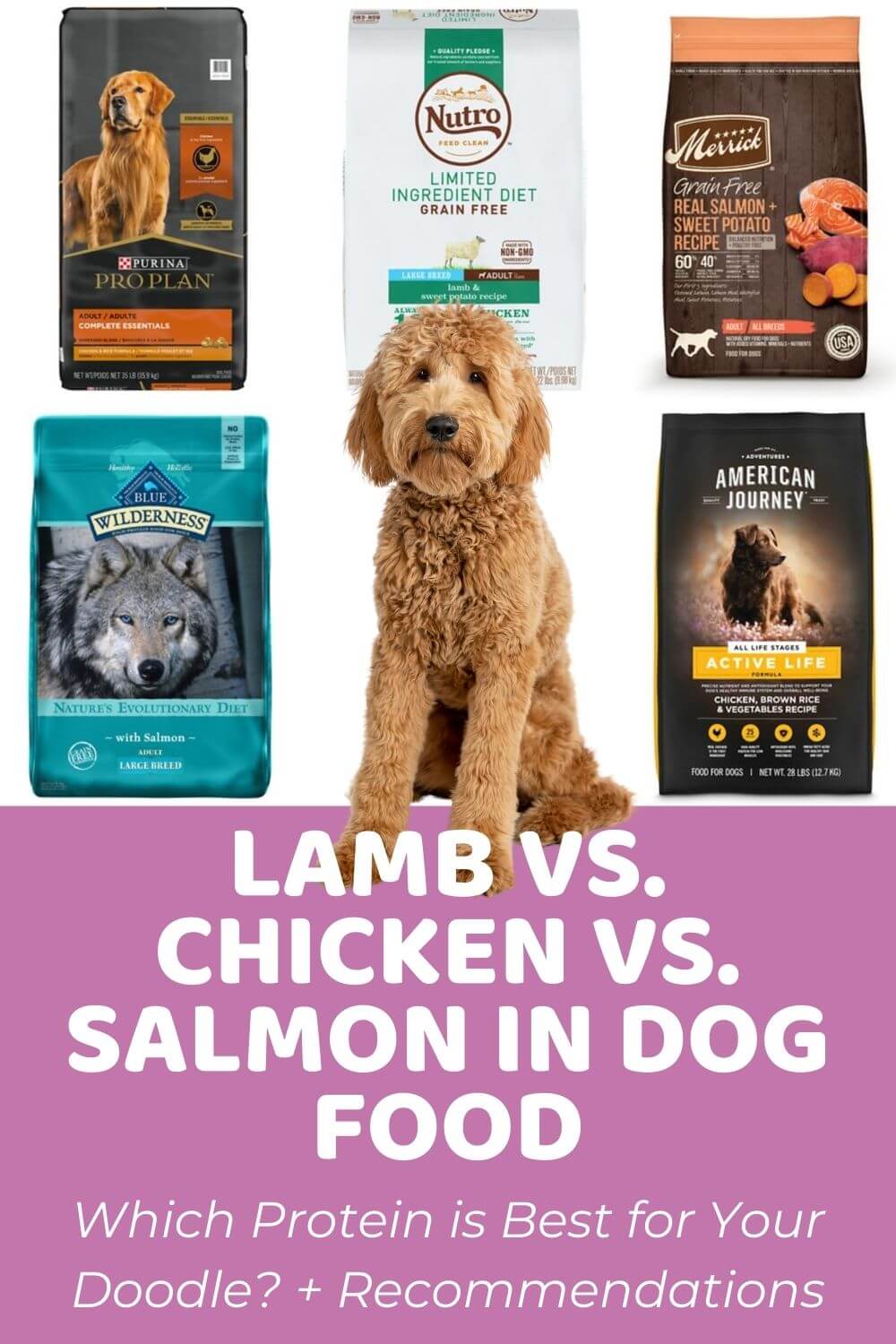
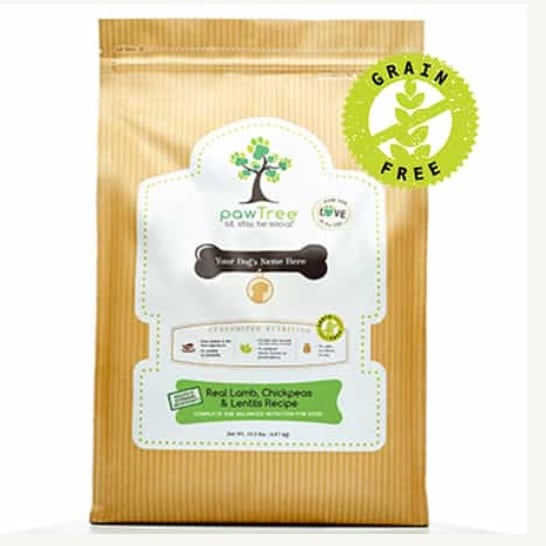
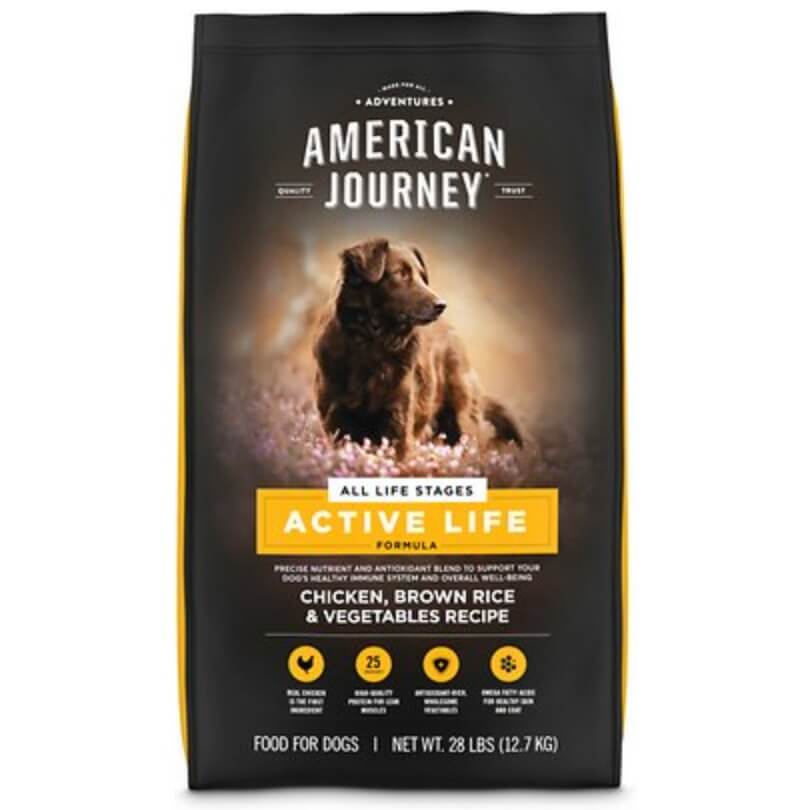
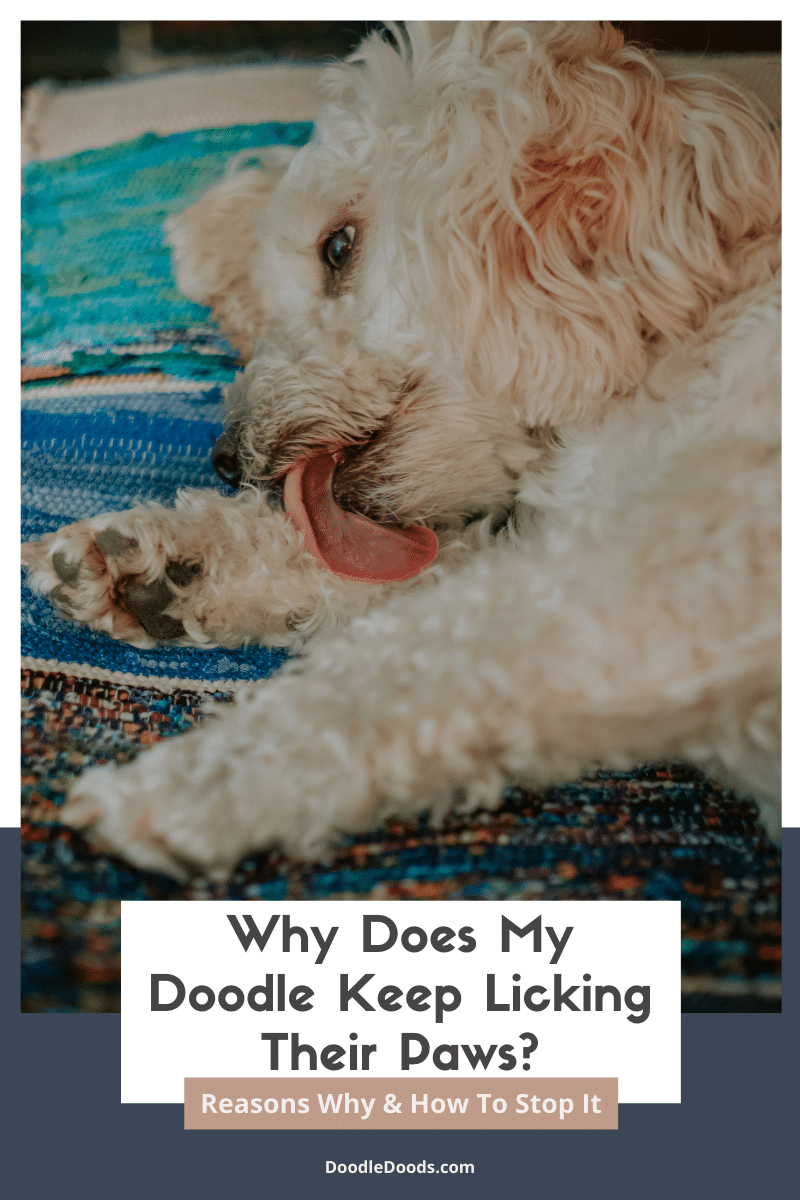
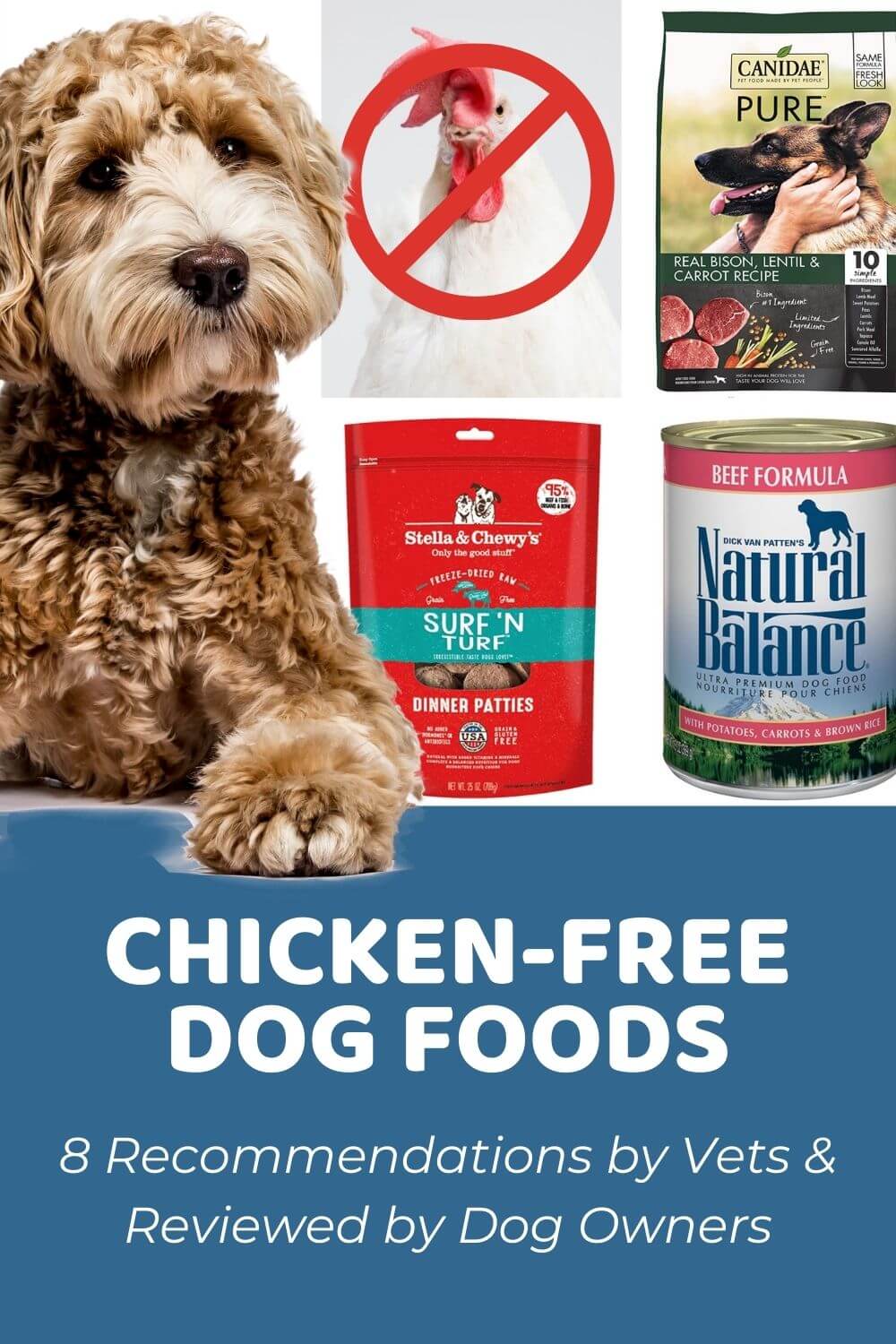
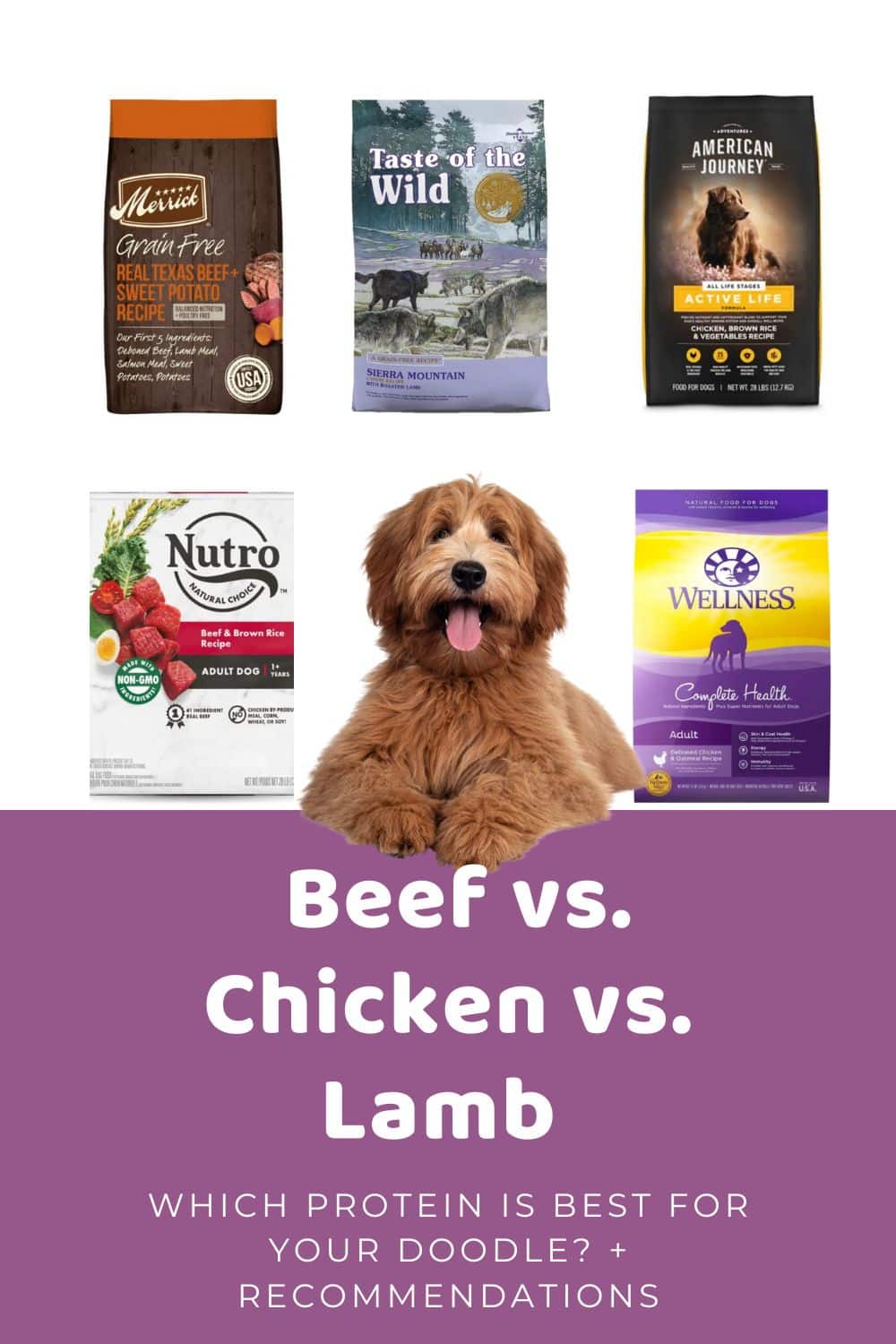
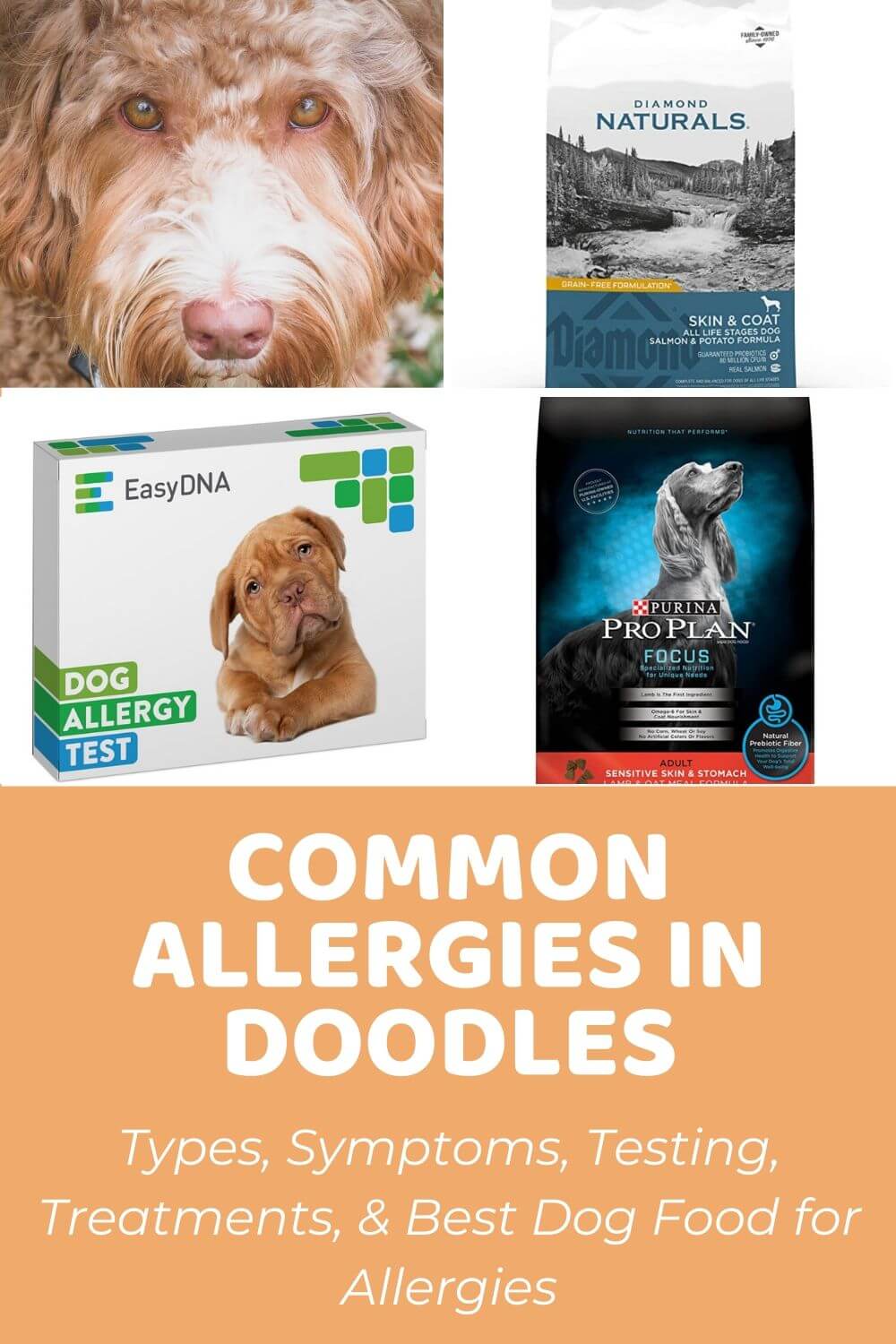
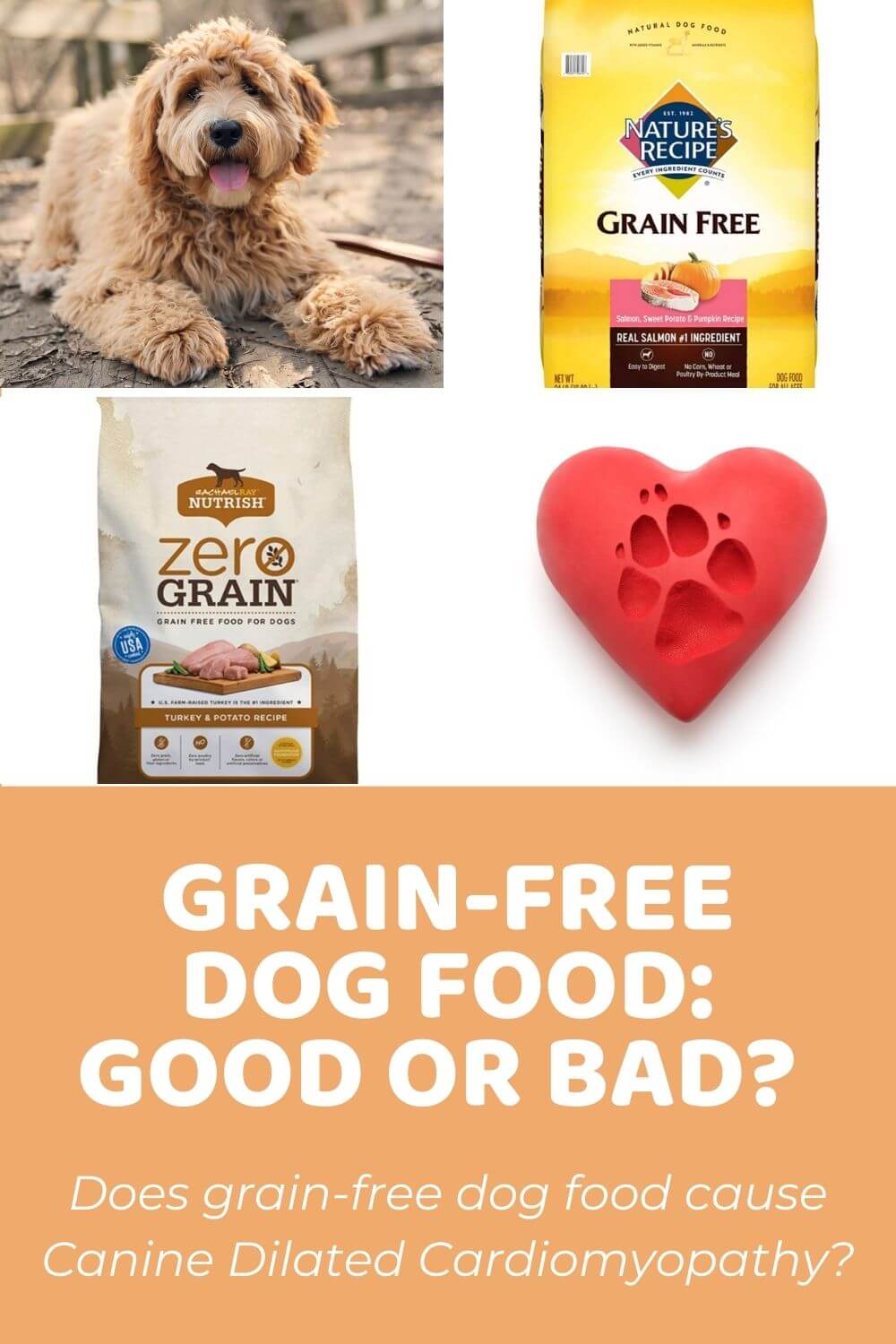
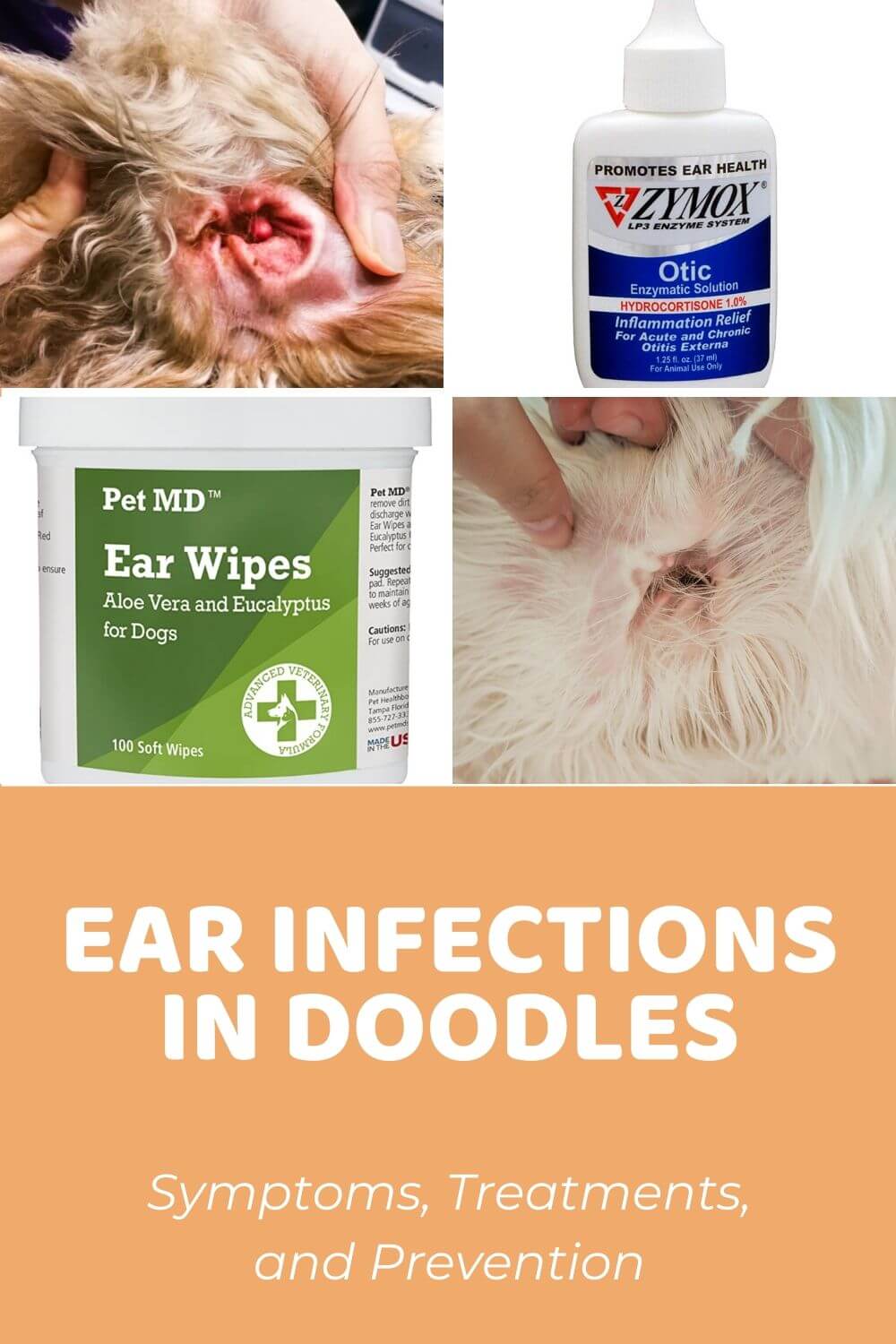
Do you have any information about shih tzu food. Digestion for puppies. Thank you Maria Hoyt
July 10, 2021 at 6:19 pm